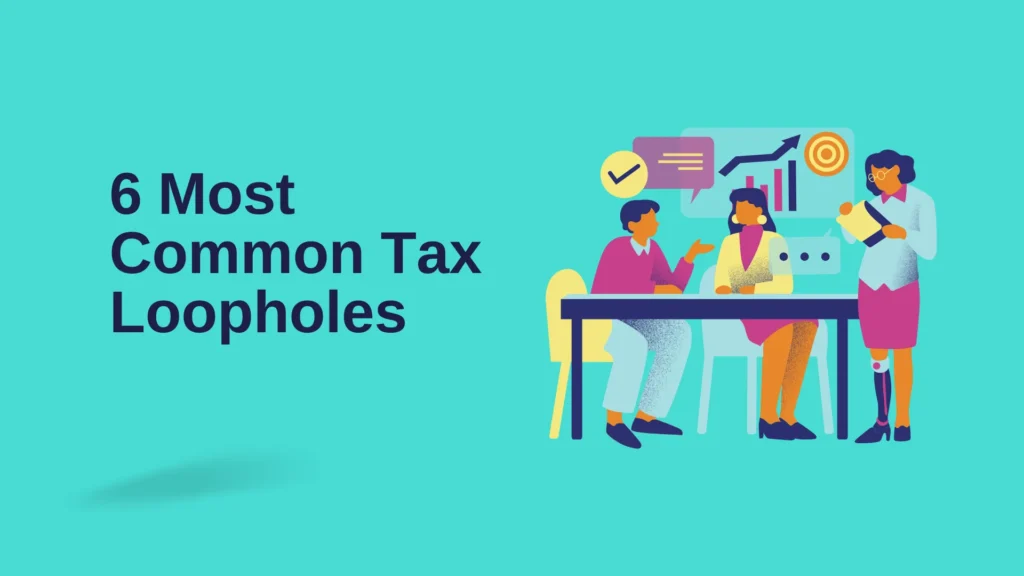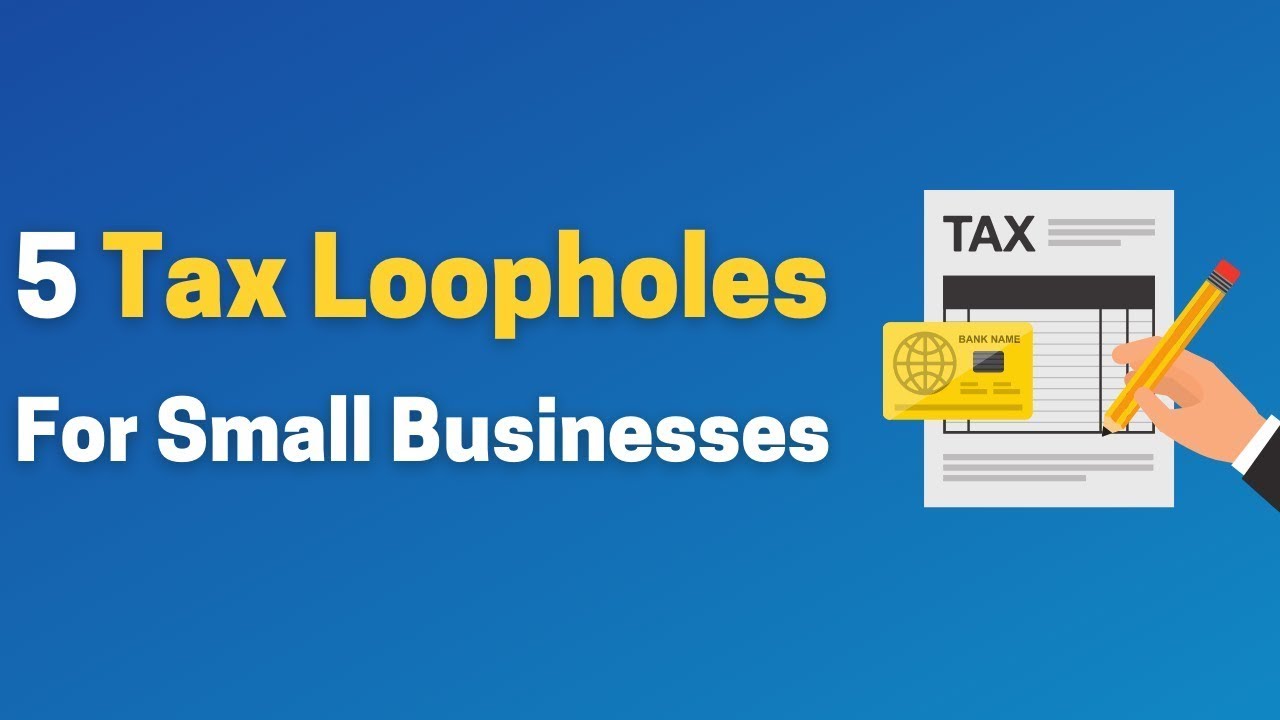“Tax Loopholes the Rich Don’t Want You to Know About (2024 USA Update)” reveals how wealthy individuals legally reduce their taxes. This updated guide explores lesser-known deductions and strategies available to high earners and businesses in the United States.
From investment credits to charitable deductions, readers gain practical insights to optimize tax planning and maximize savings. Whether you’re an individual or a business owner, understanding these loopholes can lead to significant financial benefits by navigating the tax system more effectively.

Understanding Tax Loopholes: Definition and Impact
A tax loophole typically refers to a provision in tax laws that allows taxpayers to legally reduce their tax liabilities beyond what was originally intended by lawmakers. Several factors contribute to defining what makes a tax loophole:
- Ambiguity or Lack of Clarity: Tax laws may be written vaguely or with loopholes unintentionally, creating opportunities for interpretation that lead to tax savings.
- Specific Exclusions or Deductions: Some tax laws include specific exemptions, deductions, or credits that can be used strategically to lower taxable income or reduce taxes owed.
- Timing and Structure: Tax laws may provide advantages based on when income is earned or expenses are deducted, allowing taxpayers to time transactions to maximize tax benefits.
- Complexity: The complexity of tax laws can create opportunities for tax planning strategies that exploit loopholes through intricate structures or transactions.
- Legislative Intent vs. Practical Application: Sometimes, tax laws intended to promote certain behaviors or industries can be used in unintended ways to reduce taxes significantly.
- International and Cross-border Considerations: Differences in tax laws between jurisdictions can create opportunities for multinational corporations and individuals to minimize global tax liabilities.
Overall, tax loopholes arise due to the inherent complexities and nuances of tax laws, which can be leveraged by taxpayers to legally optimize their tax situations. Governments often amend tax laws to close loopholes perceived as unfair or unintended, aiming to maintain equity and fiscal balance in the tax system.
Examples of Common Tax Loopholes
Here are examples of tax loopholes that have been exploited or debated:
- Carried Interest: Investment fund managers often receive compensation through “carried interest,” taxed at lower capital gains rates rather than ordinary income rates.
- Corporate Tax Deductions: Companies can sometimes deduct expenses like executive compensation or interest on certain loans, reducing taxable income significantly.
- Offshore Tax Havens: Multinational corporations and wealthy individuals may use offshore accounts to shelter income from higher tax rates in their home countries.
- Real Estate Depreciation: Real estate investors can deduct depreciation expenses, even when properties appreciate in value, reducing taxable income.
- Charitable Deductions: High-income individuals can donate appreciated assets to charities, avoiding capital gains taxes and receiving a deduction for the full market value.
- Tax Credits for Renewable Energy: Businesses and individuals may benefit from tax credits for investing in renewable energy projects, reducing tax liabilities.
Overview of Tax Credits Available to All Taxpayers:
- Overview of Universal Tax Credits
- Tax Credits Accessible to Every Taxpayer
- Exploring Tax Credits for All Individuals
- Universal Tax Credit Opportunities
- Benefits of Tax Credits for Every Taxpayer
Choose one that best fits the context of your discussion on tax credits available to all taxpayers.
Positive Moves for Improvement:
- Taking Positive Steps Forward
- Moving Toward Positive Change
- Progress in the Right Direction
- Steps Toward Improvement
- Advancing in the Right Direction
Choose one that best suits the context or direction of your content or discussion.
Closing the Wealthy Borrowing Loophole:
Here are some H2 titles related to closing the billionaire borrowing loophole:
- Closing the Billionaire Borrowing Loophole: Strategies and Implications
- Steps to Address the Billionaire Borrowing Loophole
- Policy Proposals to Close the Billionaire Borrowing Loophole
- Regulatory Measures Against the Billionaire Borrowing Loophole
- Challenges and Solutions in Closing the Billionaire Borrowing Loophole
These titles are designed to focus on strategies, policies, and challenges related to addressing the billionaire borrowing loophole effectively.
Challenging Arguments Against Closing the Tax Loophole:
Arguments against closing this loophole often focus on concerns about potential negative impacts on economic growth or innovation. However, these arguments overlook the broader economic benefits that could result from closing the loophole.
Closing loopholes can lead to a fairer tax system by ensuring that all taxpayers contribute equitably according to their means. Moreover, it can generate additional revenue that can be used to fund essential public services and infrastructure projects, benefiting society as a whole. Critics may also argue that closing loopholes could stifle investment or entrepreneurship.
Yet, it’s essential to balance tax policies to promote fairness while still fostering economic growth through targeted incentives and reforms. Ultimately, addressing these loopholes is crucial for maintaining a sustainable and equitable tax system that supports long-term economic prosperity.
Conclusion
“In conclusion, ‘Tax Loopholes the Rich Don’t Want You to Know About (2024 USA Update)’ sheds light on the intricate strategies employed by affluent individuals and businesses to minimize tax liabilities within the confines of the law. This updated guide underscores the importance of understanding and navigating the complexities of the tax system to maximize savings legally.
FAQ FOR Tax Loopholes the Rich Don’t Want You to Know About:
FAQs About “Tax Loopholes the Rich Don’t Want You to Know About (2024 USA Update)”
- What is the book “Tax Loopholes the Rich Don’t Want You to Know About” about?
Ans.This book provides insights into various legal strategies used by wealthy individuals and businesses to minimize their tax liabilities under current US tax laws. - Who can benefit from reading this book?
Ans.Anyone interested in understanding how tax loopholes work and how they can legally reduce their tax burdens can benefit from this book. - What are some examples of tax loopholes discussed in the book?
Ans.The book covers examples such as deductions for certain investments, credits for renewable energy projects, and strategies for offshore tax planning. - How practical are the strategies discussed in real-world scenarios?
Ans.The book offers practical advice with examples and case studies to illustrate how these strategies can be applied effectively. - Are these tax strategies legal?
Ans.Yes, all strategies discussed in the book are legal under current US tax laws, but they require careful understanding and compliance to avoid potential issues with tax authorities.

